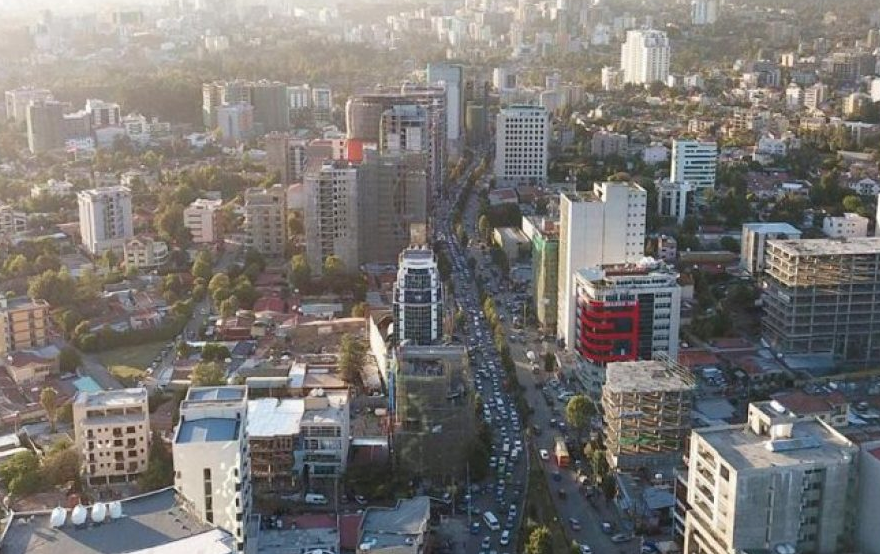
Commentaries | Jun 01,2024
May 28 , 2022.
There seem to be all types of wars these days. Civil wars, from Ethiopia to Myanmar; inter-state wars and geopolitical apprehensions, from the Russian invasion of Ukraine to China's growing tension with Australia; and growing proxy confrontations between the United States and China over trade and Taiwan.
A new one is reverse currency wars, which further diminishes prospects for underdeveloped economies like Ethiopia.
The reverse currency wars are a perversion of a prevalent phenomenon in the last decades of the 20th Century. The currency wars arose as a response by countries' central banks to interfere with exchange markets to depreciate or devalue their currencies. Mainly pushed through low-interest rates, it would make their goods and services competitive and help top narrow trade deficits. There were, of course, other reasons for near-zero interest rates, such as central banks' struggle to meet inflation targets to boost demand. The problem was exacerbated in Europe and Japan, which saw negative interest rates to combat deflation.
These were better times for Ethiopia. Arguably.
The negative side of the currency wars, export competitiveness, was not as impactful given that the Birr was also devalued. The currency wars primarily targeted service and manufacturing sectors, which Ethiopia was never close to being reckoned with.
Cheap money created by low-interest (and negative in some cases) rates meant that there was capital in the global financial system desperate to find positive returns. Even high-risk economies and sectors get some taste of the pie. Add to this the emergence of a willing partner in China, happy to use the foreign currency stockpile it was building up thanks to a historic run in annual trade surplus. It needed to diversify its investments outside of US treasury securities. Several African countries seemed enthusiastic debtors starved for infrastructure financing.
Ethiopia took up this offer from China, racking up 13.7 billion dollars in debt in the decade beginning in 2000, the second-highest in Africa.
The age of cheap money is ending for reasons outside the control of underdeveloped countries. Inflation in the advanced economies is the driving reason, which was ushered in by unprecedented levels of COVID era fiscal and monetary stimulus packages. The world pumped over 15 trillion dollars in cash to shelter economies from the falling out of the pandemic, an amount the size of the United Kingdom, India, Germany and Japan's economies together. The food and energy crisis triggered by the Russian invasion of Ukraine has made an alarming situation into a scary prospect.
Central banks have begun increasing borrowing costs to tighten the money supply and subdue a demand surge fueled by generous stimulus packages. The unintended consequence of such an expansive monetary policy pushed capital away from economies that have not also tightened or depreciated their currencies. Responding to this, a spiral of higher interest rates leads to reverse currency wars. Many countries are running out of options, losing room for manoeuvring on the fiscal and monetary policy fronts.
Ethiopia, and most other underdeveloped countries, cannot be a party to this back-and-forth. They have highly diminished foreign currency reserves they cannot afford to get exposed to the whims of hot money. Worse still, the other development partner, China, feels nervous about its investments in Africa. Chinese leaders are cutting back on the largesse witnessed in the two decades of the 2000s.
Ethiopia and the usual suspects of Chinese bilateral debt have not signed new agreements since 2020. Barely two billion dollars was secured by countries in the continent, although new Chinese loan commitments averaged eight billion dollars before that. The Chinese have not been shy about their cautionary approach to Africa. Chinese leaders were open about their intention during the Forum of China-Africa Cooperation that exposure to African countries is reduced. They want to see private investment flows and green projects prioritised over infrastructure financing.
This is a problem for Africa, with over 100 billion dollars in an annual infrastructure financing gap. Ethiopia is a good illustration of this gap between what is needed and available. It is all the more urgent, especially as the West is not a reliable partner for infrastructure financing, as rich countries prioritise paying for programmes on health, education and democratic institutions.
Rethinking the financing sources for economic development is imperative.
Developing capital markets and opening the financial sector to foreign capital could be the logical course of action. Even in the best of times, without wars and instability, government revenues never suffice to raise significant infrastructure financing. Fiscal deficits are the curse of modern-day states. These are not – neither were they ever – areas that can generate enough funds to pay for massive infrastructure projects that fuel economic growth.
Policymakers can take a page out of Kenya’s playbook and consider infrastructure bonds. This amounts to going out to the global capital market and buying debt. However, it requires fiscal discipline (which this administration is not praised for) and maturity, where investors are pitched the investment opportunities on offer. A thorough prospectus needs to be prepared on infrastructure projects and followed up closely because delays and wastage are several folds costly. It would ask the government for the same insight and skill in capital planning and expenditures asked of the private sector.
However, trying to market such projects using personalities (the usual American accented rent-pleaders who often wing it) would be desperate, if not naive, moves with no prospect for success.
Neither are diligent project planners and financing experts sufficient to advance the idea. Individual or institutional investors would first ask, “how can I exist?” It is a question the global capital that came to Ethiopia struggled to answer. A maturity period of 10 years and negative interest rates (as inflation is persistent) is not a good proposition. Very few are willing to lock away their money and give up the keys for an extended period, even for US treasuries. Ask the executives of Diageo, Heineken and Safaricom to understand how much they have underestimated the swamp.
Internationally, opening up the capital account can be a bold and courageous – and indeed historical – measure to take for an administration with no lack of reputation to be gutsy. There hardly is a meaningful forex reserve worthy of protection at this moment compared to the size of the economy. The misery of every businessperson – foreign or domestic – is directly related to access to forex, the most precious national asset left to the whims of unelected bureaucrats at the central bank. When policymakers will come to gain the wisdom of liberating the economy from the shackles of capital control remains the most baffling matter.
A secondary market for trading securities, including infrastructure bonds, could be another wise policy move. If there is a market for buying and selling securities and flexible interest rates that follow market logic, prospective investors would be more likely to fork over their capital. These investors could be state-owned enterprises, pension funds, private companies or even the central bank when it wants to conduct quantitative easing.
Infrastructure bonds are not revolutionary. This was partly done with the Grand Ethiopian Rennaissance Dam (GERD). Bonds were sold in government offices and the streets of Addis Abeba as if this was still the Middle Ages. Information symmetry was low, and without clear existing plans to make their bonds liquid when they needed it most, only the few that were "patriotic" and public service employees bought the bonds. In the end, institutional investors and individuals – a good chunk did so under duress – financed about 10pc of the entire project cost.
How much more would it have been if policymakers had liberated the financial system?
PUBLISHED ON
May 28,2022 [ VOL
23 , NO
1152]

Commentaries | Jun 01,2024

Featured | Nov 12,2022

Viewpoints | Aug 27,2022

Fortune News | Apr 27,2025

Fortune News | May 28,2022

Fortune News | Jul 06,2025

Agenda | Feb 25,2023

Fortune News | Mar 07,2020

Commentaries | Mar 06,2021

Featured | Sep 09,2019

My Opinion | 132041 Views | Aug 14,2021

My Opinion | 128437 Views | Aug 21,2021

My Opinion | 126364 Views | Sep 10,2021

My Opinion | 123987 Views | Aug 07,2021

Dec 22 , 2024 . By TIZITA SHEWAFERAW
Charged with transforming colossal state-owned enterprises into modern and competitiv...

Aug 18 , 2024 . By AKSAH ITALO
Although predictable Yonas Zerihun's job in the ride-hailing service is not immune to...

Jul 28 , 2024 . By TIZITA SHEWAFERAW
Unhabitual, perhaps too many, Samuel Gebreyohannes, 38, used to occasionally enjoy a couple of beers at breakfast. However, he recently swit...

Jul 13 , 2024 . By AKSAH ITALO
Investors who rely on tractors, trucks, and field vehicles for commuting, transporting commodities, and f...

Jul 13 , 2025 . By YITBAREK GETACHEW
The Addis Abeba City Revenue Bureau has introduced a new directive set to reshape how...

Jul 13 , 2025 . By BEZAWIT HULUAGER
Addis Abeba has approved a record 350 billion Br budget for the 2025/26 fiscal year,...

Jul 13 , 2025 . By RUTH BERHANU
The Addis Abeba Revenue Bureau has scrapped a value-added tax (VAT) on unprocessed ve...

Jul 13 , 2025 . By NAHOM AYELE
Federal lawmakers have finally brought closure to a protracted and contentious tax de...